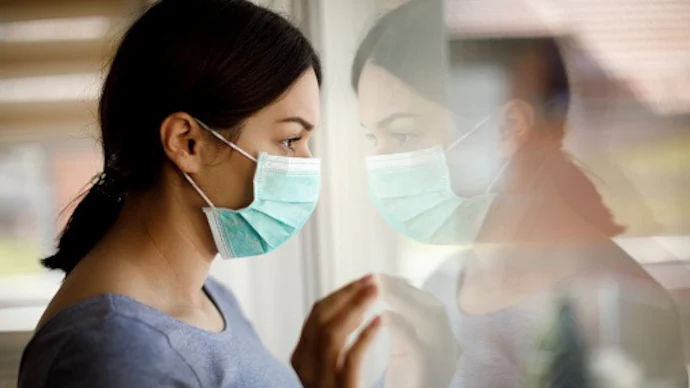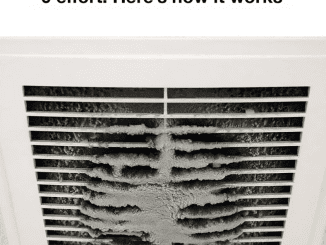Dehydration is a condition that occurs when your body loses more fluids than it takes in, leaving you vulnerable to a variety of health issues. With the human body made up of approximately 60% water, staying hydrated is crucial for maintaining proper bodily functions. Water is essential for every cell, tissue, and organ to work efficiently. Recognizing the signs of dehydration can help prevent serious complications, and knowing what to do can ensure you stay healthy and hydrated.

1. Increased Thirst and Dry Mouth
Thirst is the most obvious and natural response to dehydration. When your body needs water, it sends you a signal—your mouth feels dry, and you may experience a sticky sensation. A dry mouth results from a decrease in saliva production, which is a direct consequence of dehydration.
What to do: Drink water immediately. Keep a bottle of water handy throughout the day, and don’t wait until you’re extremely thirsty to take a sip. Regular hydration prevents thirst and keeps your mouth moist.
2. Dark Yellow Urine
The color of your urine is a strong indicator of your hydration levels. Clear or pale yellow urine typically means you’re well-hydrated, while dark yellow or amber-colored urine is a sign that your body is running low on fluids.
What to do: Increase your water intake until your urine returns to a lighter color. If your urine remains dark even after drinking more water, consult a healthcare professional, as it may signal a more serious issue.
3. Fatigue or Lethargy
Feeling sluggish or constantly tired can be a direct result of dehydration. Water plays a vital role in metabolic processes, and when your body is dehydrated, these processes slow down, leaving you feeling drained and exhausted.
What to do: Drink water and consider consuming beverages with electrolytes to boost your energy. Incorporating more water-rich foods like fruits and vegetables can also help rehydrate and energize you.
4. Headaches
Dehydration can cause headaches or even migraines. When the body loses water, the brain may temporarily shrink due to fluid loss, pulling away from the skull and triggering pain.
What to do: Rehydrate by drinking water slowly. In some cases, adding an electrolyte drink can help, especially if your headache is accompanied by other symptoms of dehydration. If your headache persists, it’s a good idea to rest in a cool, dark place.
5. Dry Skin or Chapped Lips
Your skin is another major indicator of hydration status. Dry, flaky skin or chapped lips can be a visible sign that your body is not getting enough water. Dehydration reduces the skin’s ability to stay moisturized, making it look dull and dry.
What to do: Increase your water intake and apply a good moisturizer or lip balm to combat dryness externally. Eating water-rich foods like cucumbers and watermelon can also support skin hydration.
6. Rapid Heart Rate or Breathing

When you’re dehydrated, your heart rate can increase, and you may experience rapid breathing. This occurs because your body is working harder to circulate blood and maintain proper oxygen levels.
What to do: If you notice an increased heart rate or difficulty breathing, sit down in a cool environment and slowly drink water. Avoid caffeinated or sugary drinks, which can worsen dehydration. Seek medical attention if symptoms persist or worsen.
7. Dizziness or Lightheadedness
Dehydration can cause a drop in blood pressure, leading to dizziness or lightheadedness, particularly when standing up quickly. This happens because your body struggles to maintain proper circulation without enough fluids.
What to do: Rehydrate immediately by drinking water and sitting or lying down until the dizziness subsides. If dizziness continues, seek medical advice, as prolonged dehydration can lead to more serious complications.
8. Lack of Tear Production

In extreme cases, dehydration can affect your eyes, leading to dryness or a noticeable lack of tear production. If your eyes feel gritty or you can’t produce tears when crying, it’s a sign that your body needs more fluids.
What to do: Drink water consistently throughout the day and use moisturizing eye drops if necessary to relieve dryness. Rehydrating will usually improve tear production and overall eye comfort.
9. Reduced Urination
One of the clearest signs of dehydration is reduced urination. If you find that you’re urinating less frequently than usual, it’s a red flag that your body is trying to conserve water, indicating dehydration.
What to do: Gradually increase your water intake throughout the day. Ideally, you should be urinating several times a day. If you continue to have reduced urination after hydrating, it may be worth consulting a healthcare professional.
10. Confusion or Irritability

Severe dehydration can affect your brain function, leading to confusion, disorientation, or irritability. When your brain doesn’t get the water it needs, cognitive function slows, and mood changes can occur.
What to do: Drink water and rest in a calm environment. If confusion or irritability continues, seek medical help immediately, as severe dehydration can lead to dangerous complications like heatstroke or kidney failure.
What to Do When You’re Dehydrated
If you notice any of these signs of dehydration, it’s crucial to act quickly to rehydrate your body. Here’s what you should do:
- Drink water: Sip on water slowly, rather than gulping it down all at once. This allows your body to absorb the fluid more effectively.
- Choose electrolyte-rich drinks: If you’re experiencing more severe dehydration, opt for beverages that contain electrolytes (such as sports drinks) to replenish lost minerals like sodium, potassium, and magnesium.
- Avoid caffeine and alcohol: These substances can dehydrate you further, so stick to water, herbal teas, or electrolyte drinks.
- Eat water-rich foods: Fruits like watermelon, oranges, and cucumbers are excellent sources of hydration. Incorporating these into your diet can supplement your water intake.
- Take frequent breaks: If you’re in a hot environment or exercising, be sure to take breaks in a cool, shaded area and hydrate regularly.
- Seek medical attention: In cases of severe dehydration or if symptoms persist after rehydrating, it’s important to seek professional medical help.
Conclusion: Stay Ahead of Dehydration
Dehydration is a condition that can sneak up on you, but by paying attention to your body’s signals, you can address it before it becomes serious. The key is to drink water regularly throughout the day—don’t wait until you’re thirsty. By staying hydrated, you’ll not only feel better, but you’ll also improve your overall health and well-being.


